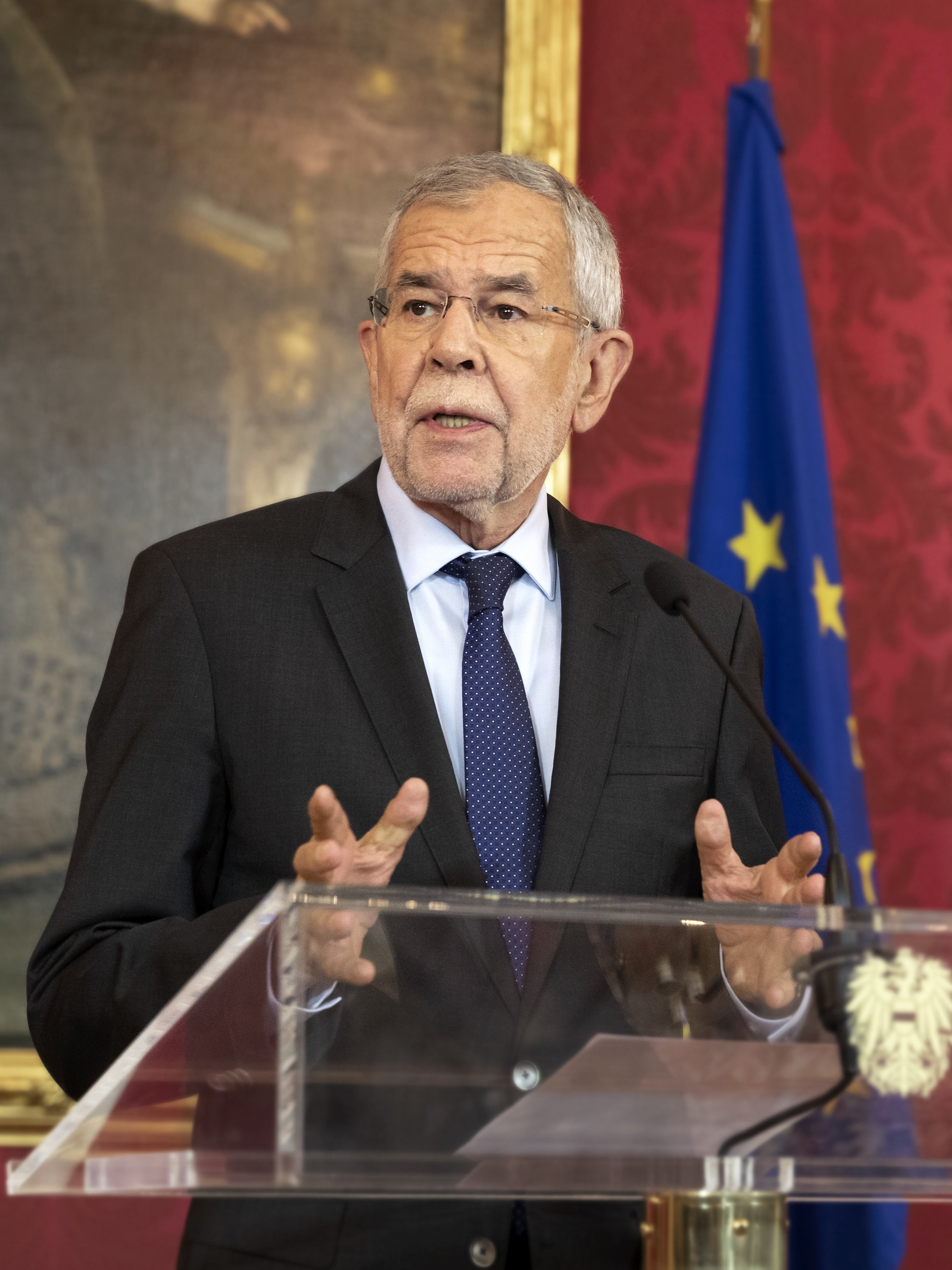Austrian President Alexander Van der Bellen Wins Re-election
President Alexander Van der Bellen delivers a speech at the Hofburg Palace in Vienna (Wikimedia Commons).
Austrian President Alexander Van der Bellen was re-elected on October 9, after election forecasts predicted him winning more than 56.1 percent of the vote. Van der Bellen, the former leader of the Green Party, avoided a runoff election with Walter Rosenkranz of the far-right Freedom Party of Austria (FPO), who finished in second place with 17.9 percent of the vote.
Because Austria has a parliamentary system of government, the president is the only directly elected representative and holds a primarily ceremonial role as the Austrian Head of State. However, the president’s job becomes especially important during crises or transitions of power.
Van der Bellen won the 2016 presidential election by a seven percent margin in a runoff against the FPO candidate Norbert Hofer. Since then, the FPO has suffered from corruption scandals and performed far worse in this election than in 2016.
Although Rosenkranz finished in second place behind Van der Bellen, five other candidates ran for the office. However, Rosenkranz was the only challenger who had the backing of a party with parliamentary representation because the FPO was the only parliamentary party that opposed Van der Bellen.
There was a stark regional divide in the election results: Far more voters in Vienna voted for Van der Bellen than did voters in the country’s rural areas. For instance, less than half of voters in Carinthia, a more rural region of Austria, voted for Van der Bellen.
Van der Bellen had expected electoral victory, but he was particularly pleased with the high electoral turnout. Nearly two-thirds of the electorate voted in the elections. 96 percent of voters from the Green party voted for Van der Bellen, and the majority of supporters of the Austrian People’s Party (OVP), Social Democratic Party of Austria (SPO), and New Austria and Liberals Forum (NEOS) also backed Van der Bellen.
The FPO fared significantly worse in this election than in 2016, but Rosenkranz was not fazed by the loss—although he had hoped to at least force a runoff election. He criticized comparisons with Hofer’s 2016 results as “unfair,” as this year’s political and economic environment is drastically different from the last presidential election’s.
FPO leader Herbert Kickl remained defiant and declared that the party should continue to aggressively oppose Van der Bellen and the current ruling coalition, which is led by the left-wing Greens and center-right OVP.

